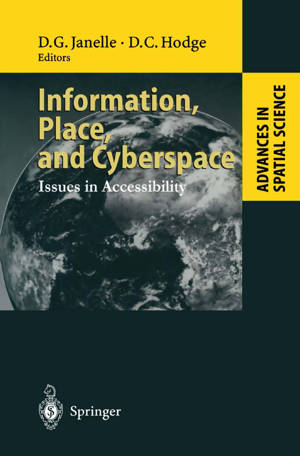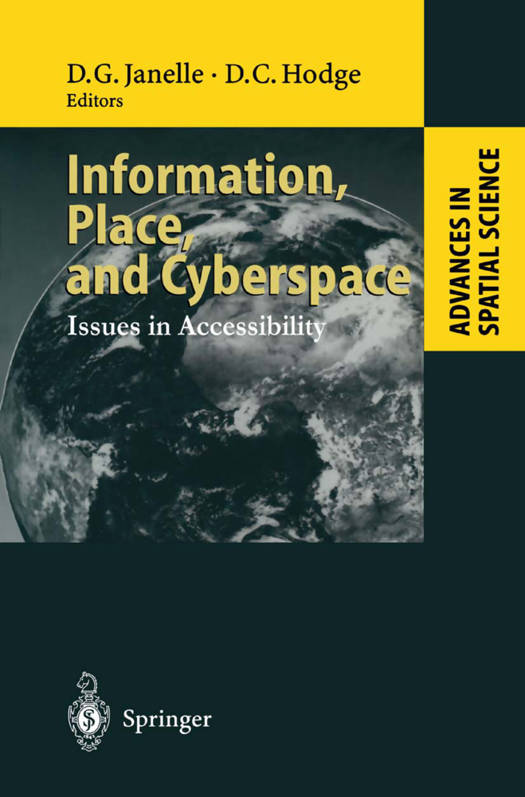
- Afhalen na 1 uur in een winkel met voorraad
- Gratis thuislevering in België vanaf € 30
- Ruim aanbod met 7 miljoen producten
- Afhalen na 1 uur in een winkel met voorraad
- Gratis thuislevering in België vanaf € 30
- Ruim aanbod met 7 miljoen producten
Zoeken
Information, Place, and Cyberspace
Issues in Accessibility
€ 181,95
+ 363 punten
Omschrijving
The use of the term the information age to describe the period that we now fmd ourselves living in is open to misinterpretation. Society has always been based on exchanging information, and our libraries have long been rieh sources of vast of readily available information; it is information technologies that have quantities changed rapidly sinee the invention of the digital computer. These technologies are themselves products of long-term societal processes: The eeonomic desire to shorten the time that lapses between produetion and consumption of eommodities, annihilating space with time; the political desire to control such large-scale sys tems as commodity ehains, nations, and the military; and the human desire to lib erate ourselves from the constraints of our loeal daily lives. They also have had profound effeets on societal proeesses. One of the most widely discussed effeets, and a eonsistent theme of this volume, is that the information age is bringing about the end of geographie al distance as a signifieant baITier ofhuman interaction. This claim underlies prognostications about the information age: That this will be the age of globalization; of the global village; of the liberation of human inter action from the tyranny of space; of the dissolution of cities and workplaces; of the plugged-in soeiety; and of the surveillance society. If these prognostications were true, then the topie of aceessibility would indeed be a disappearing research pro gram and this book a marker of its disappearance.
Specificaties
Betrokkenen
- Uitgeverij:
Inhoud
- Aantal bladzijden:
- 386
- Taal:
- Engels
- Reeks:
Eigenschappen
- Productcode (EAN):
- 9783642086922
- Verschijningsdatum:
- 7/12/2010
- Uitvoering:
- Paperback
- Formaat:
- Trade paperback (VS)
- Afmetingen:
- 156 mm x 234 mm
- Gewicht:
- 557 g

Alleen bij Standaard Boekhandel
+ 363 punten op je klantenkaart van Standaard Boekhandel
Beoordelingen
We publiceren alleen reviews die voldoen aan de voorwaarden voor reviews. Bekijk onze voorwaarden voor reviews.







